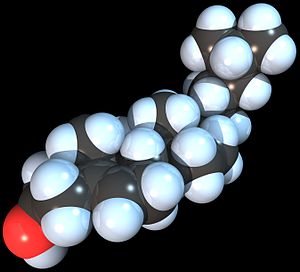How are your cholesterol readings? If you haven’t gotten your cholesterol tested in a few years, it is a good idea to have it checked again. Your levels of artery-clogging cholesterol will rise with age and if you are 20 years old or older you should be checking it at least once every five years.
If you find out that your cholesterol readings are high, the good news is that it is easier to lower it than you might think. There might be a few very small changes that you can make which will help to reduce your cholesterol within a matter of weeks.
What Are the Dangers of High Cholesterol?
So how exactly does cholesterol work and why is it important to have low levels of this substance? Cholesterol builds up along your artery walls and forms plaque, which will narrow the space within your arteries. This means that your blood will have less space to flow through. The build-up is made of cholesterol as well as other substances such as cell waste products, fats, calcium and fibrin.
The process of plaque building up and blocking your arteries can happen over years before you have symptoms. This is known as atherosclerosis or hardening of the arteries. Eventually, this plaque can block your blood flow completely.
Why Do People Get High Cholesterol?
There are many risk factors that are associated with high cholesterol. First of all, smoking is a huge risk factor for high cholesterol. This is because smoking cigarettes will damage the walls of your blood vessels and make them likely to accumulate deposits of fat. Also, being overweight with a BMI of 30 or higher will put you at risk for high cholesterol.
Also, your diet might be the cause of high cholesterol. The foods that will contribute to this condition are red meat and other animal products, full fat dairy products and products such as packaged cookies and crackers which contain trans fats.
Not getting enough exercise also means that you are likely to have high cholesterol levels. Having high blood pressure will contribute to this, as increasing the pressure on your artery walls will damage your arteries and speed up the accumulation of the fatty deposits.
Of course, one factor that you cannot control is your genetic predisposition to heart disease. If you have a parent or a sibling who has developed heart disease before the age of 55, you will have a much higher risk.
How to Lower Your Cholesterol
Although your genetic family history of heart disease is nothing that you can control, what you can control is your lifestyle. There are simple lifestyle changes that you can make which will lower your cholesterol and improve your heart health.
Here some things that you can do to improve your cholesterol levels and ensure that you live a longer and healthier life:
Improve Your Lifestyle
Do you lead a healthy lifestyle? Perhaps there are some changes that you can make to your lifestyle, such as maintaining a healthy weight, giving up smoking, adding more exercise into your routine and taking time to relax.
Eat Healthier
Eating fibre will help you to reduce your cholesterol. Try choosing wholegrain foods and eating more legumes, such as beans. You should also try to have at least two servings of fruit and vegetables each day. Also, foods containing plant sterols will help, so eating Flora actually lowers cholesterol.
Eat Fewer “Bad Fats”
It is trans fats that really have a dangerous effect on your arteries, so try to limit the amount of foods which contain them. This means that when you are eating red meat; try to trim the fat off the side. Limit your intake of cream and butter and avoid eating pastries and takeaways as much as possible. This doesn’t mean that you can’t have them every now and then as a treat, but don’t eat them every day!
Eat “Healthy Fats”
There are a number of foods with “good fats” that you should be eating to improve your cholesterol, such as salmon, tuna, almonds and other fish and nuts. Also, you can switch out your oils to healthy options, such as olive oil or sunflower oil.
These are a few ways that you can change your lifestyle and improve your cholesterol.
Paul Simmons is a health buff, fitness guru and father of two. He shares tips on living healthy and spends his free time running with his dog Max.
[toggle title=”Featured images”]
[/toggle]


Leave a Reply